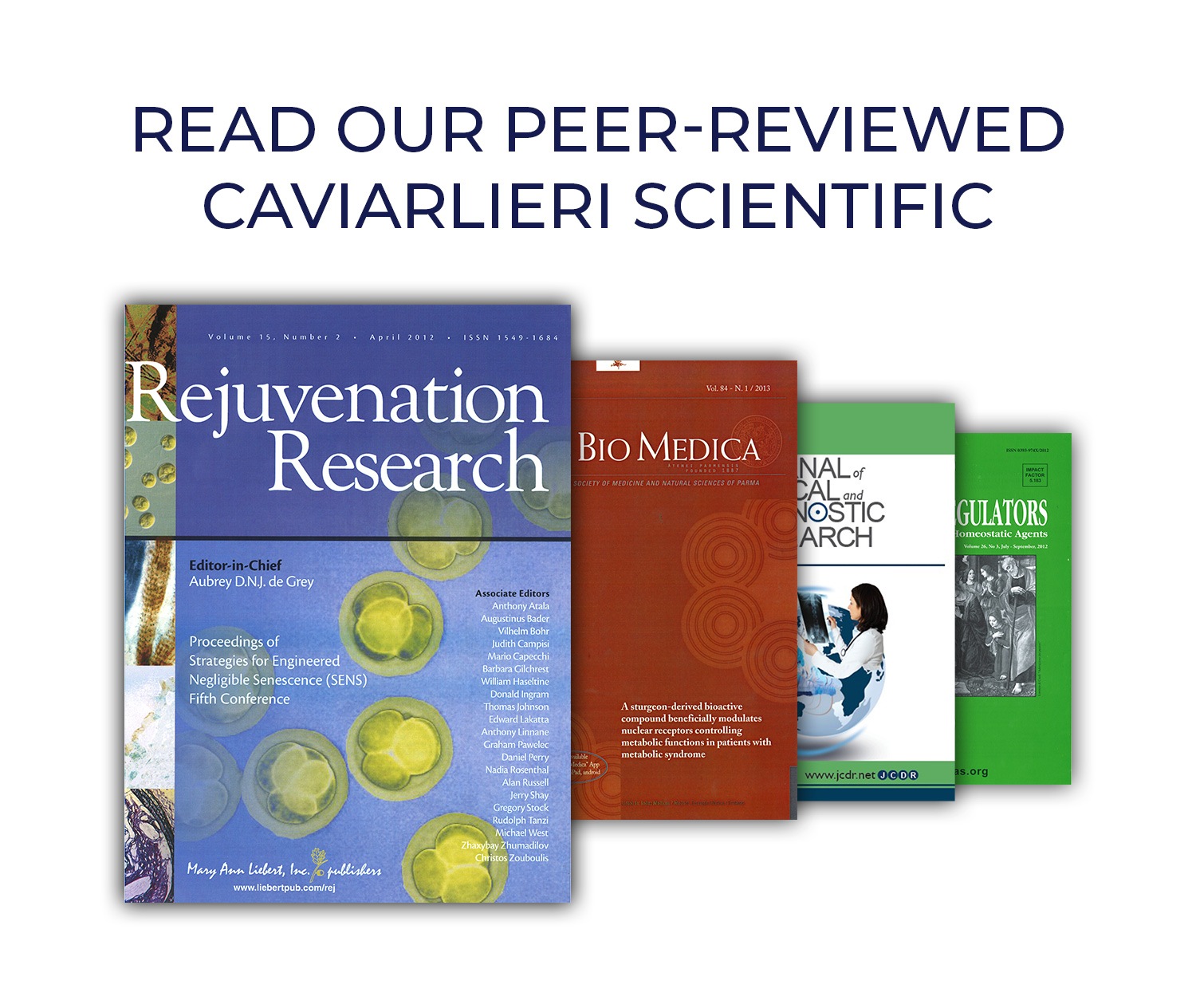Inflammation and Caviarlieri
Caviarlieri | Published July 18, 2019
The World Health Organization ranks chronic diseases as the greatest threat to health. Chronic inflammatory diseases — including stroke, heart disorders, cancer, and diabetes are the most significant cause of death worldwide.
How can we possibly guard against chronic inflammation which can lead to degenerative diseases? Recent studies have shown that chronic inflammation can trigger debilitating illnesses from cardiovascular disease to dementia, knowing how to modify your lifestyle and learning the practical steps to do so may help you to prevent the onset and progression of chronic degenerative diseases.
Some self-help strategies are listed below:
- Work on a healthy diet to avoid pro-inflammatory food. These are foods that include processed foods, carbohydrates, high sugars, unhealthy fats. A well-balanced diet is vital for building your body’s immune system and healing power. That’s why nutrition can be your ally in fighting pain and inflammation.
- Avoid long terms usage of drugs unless necessary to prevent the build-up of toxins and pollutant within your body, creating adverse side effects.
- Exercise Regularly to keep fit and maintain a healthy body.
- Take Anti-Oxidants Rich foods.
- Fish and other foods that contain omega-3 fats.Omega-3 fats play a role in altering the inflammatory process and regulation of pain. Salmon, tuna, trout, mackerel, and herring are high in these fats. Soy-based foods, walnuts, pecans, and ground flaxseed are also good sources of omega-3 fats.
- Colorful fruits and vegetables, such as leafy greens, avocados, beets, and berries, are rich in antioxidants. Antioxidants can prevent, delay or repair some types of cell and tissue damage. Antioxidants include certain vitamins, minerals and plant chemicals, such as vitamin C, vitamin E, carotene, lycopene, and flavonoids. A wide variety of other foods are also rich in antioxidants, such as lentils and beans; nuts and seeds; whole grains; green tea; and certain spices, such as ginger and turmeric.
- Take a potent Anti-Inflammatory supplement like Caviarlieri.
It is known that most people after 30 years old have a poor digestive system and this results in poor absorption of nutrients. This means even if you try to have a healthy diet, the body is unable to break down the food, bypass the stomach acid and be deposited in your small intestine and finally make its way to your cells for protein synthesis and cellular renewal and repair.
Caviarlieri is lavishly formulated with the finest Caviar Cellular Extracts and Marine peptides and highly polymerized collagen, known for their potent anti-inflammatory benefits. These ingredients are extracted using our Swiss Proprietary Swiss Cold Cellularix DNA extraction technology. These low temperatures of the extraction process will mean that the micronutrients you take are biologically “active” and potent when you take the product and the inherent benefits of the ingredients are optimized and not compromised. In addition, the peptide is small molecules of amino acids which also ensure that the nutrients are transported to areas where your body requires repair. Most importunately, it ensures the provision of essential nutrients at the cellular level, triggering cellular repair against damaged cells and provide the ammunition to fight oxidative stress. Remember not everything you eat can be absorbed.
Caviarlieri is backed by science and you may wish to read the details at our web site swisscaviarlieri.com
Subject
Recent Posts
-
The Amazing Benefits of Highly Polymerized Fish Collagen Peptides with Elastin – Caviarlieri
-
The World’s Most Effective Caviar DNA Extract with Marine Bioactive Peptides
-
Are Supplements effective for Joint Pain?
-
Why Is Sustainable Immunity Important for Your Long-Term Health
-
What is your “Body Age” – Biological Age?




